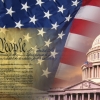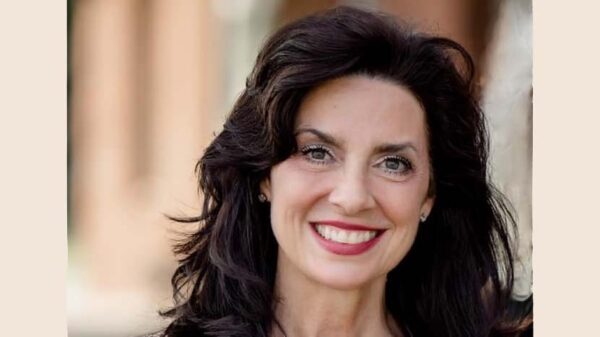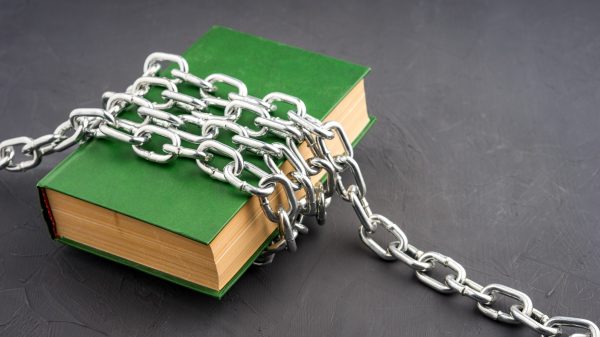About 80 speakers showed up Tuesday to voice their opinion on Gov. Kay Ivey’s proposed changes to the Alabama Public Library Service administrative code that would require new policies for libraries to receive state aid.
There were two clear sides between the speakers—one side that opposed the changes and believes libraries are already handling materials appropriately and the other side which believes libraries are allowing inappropriate content to be placed in sections for children and young adults.
What was less clear, however, is how many speakers actually supported Ivey’s proposed changes, and particularly just how many supported adopting Ivey’s changes without amendment.
Speakers who argued that the libraries are handling materials appropriately uniformly rejected the code changes, although they indicated they would accept a counterproposal by the Alabama Library Association if the board does not want to leave the code as is.
Some of the speakers on the other side indicated support for Ivey’s code changes—but many of them said the changes do not go far enough and voiced support for further code changes, in particular an amendment by APLS board member Amy Minton that would almost mirror a policy implemented in Prattville.
Many speakers did not reference the code changes at all.
The board did not give any details on the 4,000 letters received and how many were in favor of the code changes vs against.
Opponents of code changes say the state has rigged the process from the start
Speakers who opposed the policies and supported the current code called attention to an APR article published Monday which quoted Autauga-Prattville Public Library board chair Ray Boles stating that the board rushed a “really far right policy” so that the state could come in and “move to the center.”
“Does a democratic state secretly search for a library board that will adopt a ‘really far right policy so the state can come in and move policy toward the middle’ as Ray Boles said,” asked Jennifer Corpus, organizer of the Trussville chapter of Read Freely Alabama. “This negotiation tactic is known as anchoring and concession and means the Prattville library adopted extreme policies to provide a starting point. The state then leveraged this to appear moderate while implementing extreme measures … These clandestine operations are not democratic.”
Jessica Hays, advocacy coordinator for the Alabama Library Association, appeared to insinuate ALGOP chair and APLS board member John Wahl as a player in this operation.
“Who made these backroom deals,” asked Hays, looking directly at Wahl. “Who would have the political apparatus? Who would have the ear of extremist groups?”
Hays went so far as to say the public hearing is “not a good faith public hearing.”
Alex Kim-Yohn, a librarian in the Huntsville-Madison County Public Library system said they had heard rumors that the board had already decided to accept Ivey’s changes regardless of the public comment out of fear of retribution from Ivey and state lawmakers.
As of Tuesday, it does not matter whether the board agrees to the code changes. As speakers pointed out, the proposed Education Trust Fund budget now only a Senate vote away from passage requires libraries to adhere to Ivey’s proposed changes regardless of whether they are approved in the administrative code.
Book challengers emphasize sexual content, but also “gender ideology”
Speakers who either supported Ivey’s code changes or called on Minton’s amendment spent a lot of time talking about books with sexual content, reading excerpts or showing illustrations from oft-challenged books like “Genderqueer” (a graphic memoir intended for adults but sometimes shelved in the young adult section), “It’s Perfectly Normal” (a controversial 50-year-old sex education book for younger children with childlike illustrations of nudity and sexual situations), “Tricks” (a book that deals with child forced into prostitution) and others.
But while the speakers railed against allowing such sexual content in books targeted at minors, most speakers also noted they believe the state agency should require libraries to restrict gender ideologies in books for minors in order to receive state aid.
“These books are not just inappropriate, they are vulgar and pornographic,” said Sheila Wright. “They include details of minors involved in trafficking; sexual activities including vaginal, anal and oral sex; masturbation; sexual grooming; rape; excessive profanity; positive portrayal of illegal drug and alcohol use; indoctrination of gender ideology and transgendering.”
While most of the speakers challenging books noted their resistance to being labeled “book banners” and indicated they only want the books moved to the adult section, Wright said moving the books does not go far enough to protect minors because “minors still have access to these areas.”
Wright also tapped into a running theme among speakers on her side: that the content being challenged in libraries is the result of a Marxist conspiracy operated by the American Library Association to destroy the nuclear family.
Terry Richmond said the problem began in the mid-1900s when schools stopped using the McGuffey’s Readers and said students and teachers are now being trained “in Marxist agendas rather than American principles.”
Julia Cleland of Eagle Forum of Alabama said there is a “battle for the minds and hearts of our children” happening in libraries.
“Marxists use social chaos as a deliberate strategy for disruption,” Cleland said. “The ‘Queer Theory’ in which (current ALA president Emily) Drabinski specializes openly aims to destroy the West by destroying the natural family, natural sex …”





















































